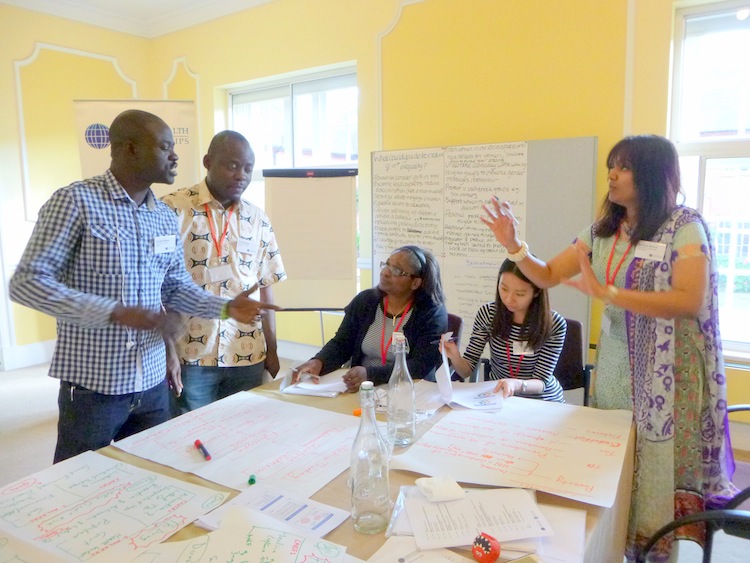
Africa continues to face huge challenges in producing sufficient quantities of safe and nutritious food for its rapidly expanding population in an environmentally sustainable way. There is tremendous potential for knowledge generated through scientific research, and acquired through farmers' own experience, to be better utilised to address these challenges.
At an event hosted by the All Party Parliamentary Group on Agriculture & Food for Development at the Houses of Parliament on 19th March participants discussed how the use of open educational resources (OER) can dramatically widen access to agricultural knowledge. Drawing on successful OER initiatives in Africa on teacher education and community education, Lesley-Anne Long of the Open University (OU) outlined how a similar approach can be applied to agricultural development.
Participants at the event learned of an exciting new collaboration between the Natural Resources Institute (NRI), the OU and partners in Africa. The 'Farm Education and Training' (FARM-ED) initiative uses open and distance learning to assist smallholder farmers in Africa to tap into the wealth of existing knowledge on agricultural best practice.
NRI's Tim Chancellor, and Rebeccca Hanlin and Julius Mugwagwa of the OU, described how FARM-ED combines OER with face-to-face training and innovative information and communication technologies, including the use of mobile phones to support learning. In a pre-recorded video clip, Nodumo Dhlamini of the Uganda-based Regional Universities Forum for Capacity Building in Agriculture explained how FARM-ED adds value to current OER initiatives in Africa.
FARM-ED aims to enhance farmers' knowledge on a range of priority issues including agribusiness, value chains, adaptation to climate change and nutrition. It has a strong focus on supporting the needs of young people and women in agriculture and works with policy makers to support the creation of favourable policies and institutional arrangements for agricultural development.
It was discussed at the event that production needs to be increased sustainably so that the resource base is conserved for future generations. As Tim Chancellor states, "At the same time, agricultural activities have to generate sufficient income to engage young people and women, and deliver greater benefits to rural communities."

